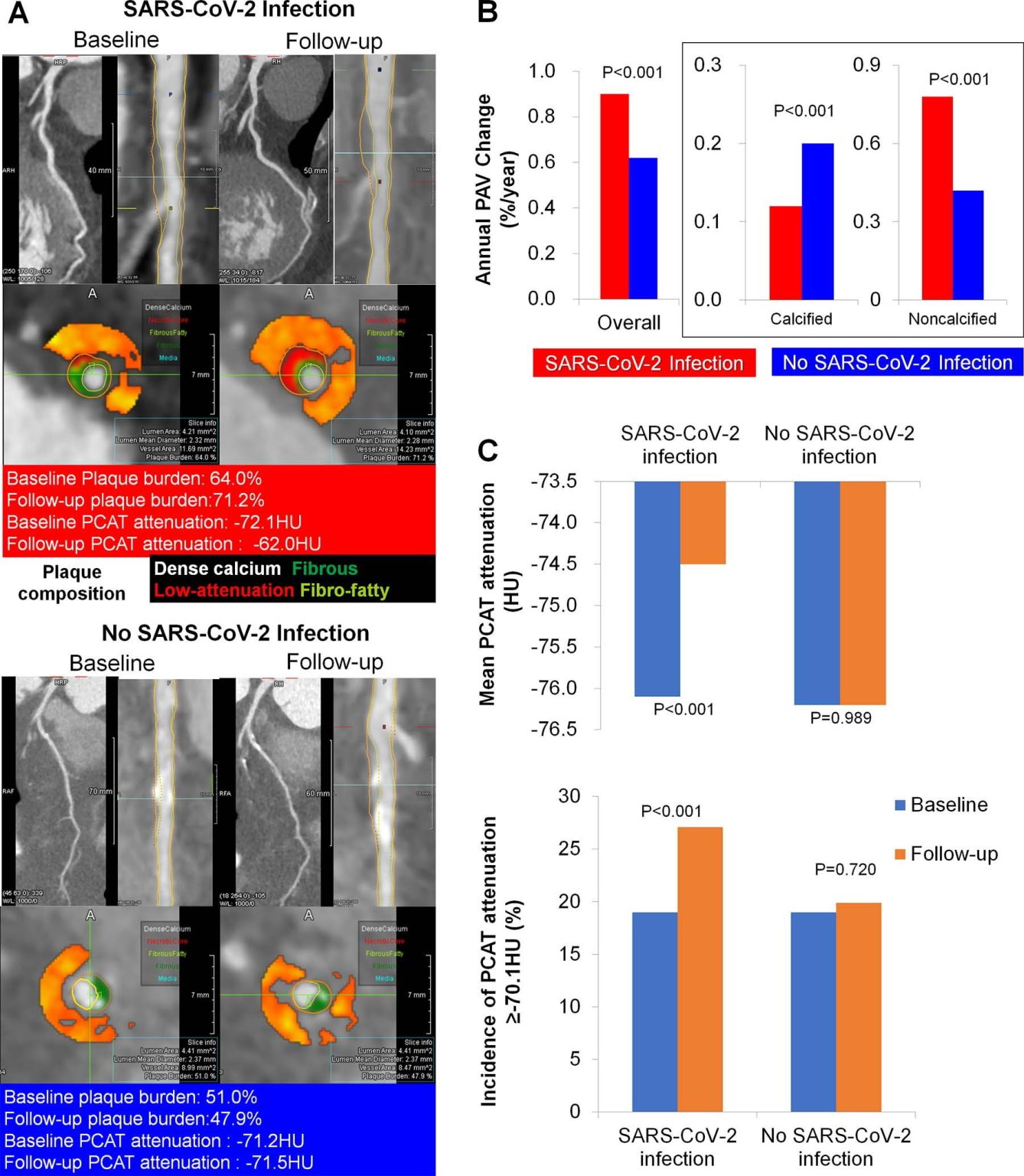SWSCcovid – by Stephen Beech
The virus that causes Covid also increases the risk of a heart attack or stroke, warns new research.
SARS-CoV-2 is linked with the rapid growth of plaque in the coronary arteries which increases the chances of major cardiovascular events, say scientists.
Study senior author Professor Junbo Ge, of Fudan University in Shanghai, China, said: “Covid-19, caused by SARS-CoV-2, is initially characterised by acute lung injury and respiratory failure.
“However, emerging evidence indicates Covid-19 also involves an extreme inflammatory response that can affect the cardiovascular system.”
Dr. Ge, says the systemic inflammation produces “consequences” for the heart beyond the first month of infection, leading to high mortality and unfavourable outcomes.
The Chinese research team investigated the impact of SARS-CoV-2 infection using coronary CT angiography (CCTA) to assess coronary inflammation, determined by analysing changes in tissue surrounding the coronary arteries, as well as plaque burden and type.
The tudy included patients who underwent CCTA between September 2018 and October 2023.
The final study group of 803 men and women, with an average age of 63.9, included 329 patients (41%) imaged before the Covid pandemic and 474 patients imaged during the pandemic.
Of those, 25 patients were infected with SARS-CoV-2 before imaging.
The research team analysed a total of 2,588 coronary artery lesions, including 2,108 lesions among SARS-CoV-2 patients and 480 lesions among uninfected patients.
For all patients, researchers compared baseline and follow-up measurements of plaque volume changes, the presence of high-risk plaque and inflammation.
They also analysed the relationship between SARS-CoV-2 and cardiovascular events, including heart attacks.
At the outset, the average stenosis, or narrowing of the artery, per lesion was 31.3%. Only 8.1% of lesions had diameter stenosis of 50% or more.
Compared to the uninfected patients, the plaque volumes grew faster in SARS-CoV-2 patients.
Lesions in patients with SARS-CoV-2 infection had a higher incidence of developing into high-risk plaques and coronary inflammation.
Patients with Covid also had a higher risk of target lesion failure – an indicator of increased heart attack or stroke risk, according to the findings published in the journal Radiology.
Dr Ge said: “Inflammation following Covid-19 can lead to ongoing plaque growth, particularly in high-risk, noncalcified plaques.
“Patients with SARS-CoV-2 infection are at increased risk for myocardial infarction, acute coronary syndrome and stroke for up to a year.”
He says that the effects persist during the aftermath of Covid, regardless of factors such as age, high blood pressure and diabetes.
Dr Ge said: “Effective management strategies for these patients are imperative.”
The findings suggest that SARS-CoV-2 infection may exacerbate cardiovascular risk by accelerating the progression of susceptible plaques and coronary inflammation.
But the research team said a more comprehensive understanding of the biological mechanisms is required to formulate preventative approaches and treatment.
Dr Ge added: “It’s crucial to anticipate a heavier cardiovascular patient burden in the future as most infected individuals recover from acute SARS-CoV-2 infection.”
ENDS




